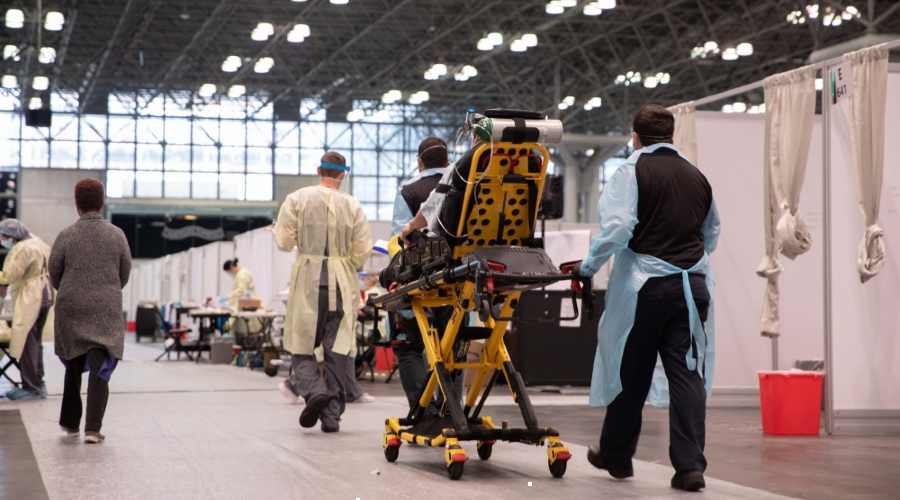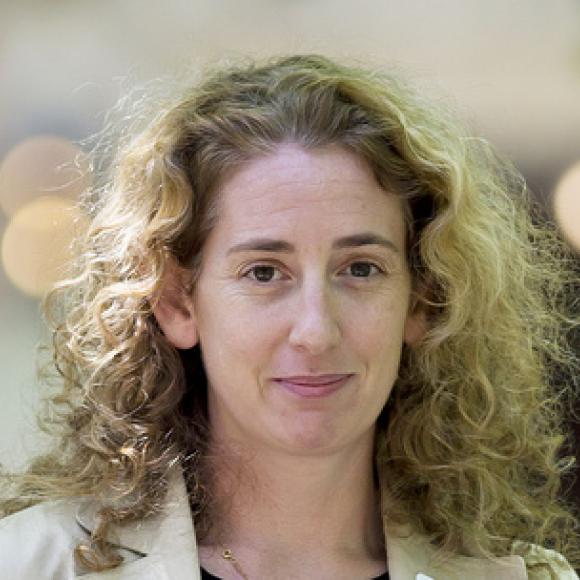COVID and Cooperation: The Latest Canary in the Coal Mine
The pandemic is the most immediate in a set of crises—some new, some ignored for too long—to which the international community cannot adequately respond.

Published by The Lawfare Institute
in Cooperation With

Editor’s Note: The COVID-19 crisis is a global one, and for all the horror stories from Italy, the United States, and other wealthy countries, the developing world is likely to be hit far harder. Containing, mitigating and curing the disease are truly global challenges, but there has been no effective global response. Yale University’s Hilary Matfess and the University of Chicago’s Rebecca Wolfe examine the crisis to assess what it means for global cooperation and argue that U.S. isolationism and efforts to act solely on its own have made a tough problem even harder.
Daniel Byman
***
At the end of January, there were fewer than 10,000 confirmed cases of COVID-19 in 20 countries. As of May 2, there were more than 3.2 million confirmed cases, with nearly 230,000 deaths reported.
When international cooperation was critical to confront a shared threat, global leaders responded with isolationism and xenophobia. The rapid spread of the coronavirus and the ineffectual global response is not the fault of any single country; rather, it is yet another sign of how battered and anemic the system of international cooperation is. The pandemic is the most immediate in a set of crises—some new, some ignored for too long—to which the international community cannot adequately respond. The failure to cooperate in response to the novel coronavirus bodes poorly for the response to looming threats like the emerging economic recession and climate change.
The Road Not Taken
An effective global response to the pandemic would have included the early adoption of coordinated travel restrictions from China and other countries that were affected early by the virus, paired with appropriate quarantine measures. Ideally, these restrictions would have been based on the most reliable and rigorous data and implemented with respect for human rights and transparency. In the early days of the pandemic, there was an opportunity for countries to share data about the characteristics of the virus to inform a shared set of management protocols and social distancing policies, facilitate the development of testing, and make headway on learning about the most effective treatments. A competent global response would have also prioritized the removal of trade barriers and protectionist measures that jeopardize critical supply chains and the acquisition of necessary medical equipment. Developed countries and multilateral institutions would have proactively created plans and allocated funds to help developing countries and countries with weak health infrastructure respond to the crisis.
In contrast, the actual response to the pandemic has been fragmented, competitive and suspicious. Forums for international cooperation have been slow and underwhelming in their response to the pandemic. The United Nations, which ideally should be leading the response laid out above with strong support from the Security Council, has struggled to pass even a resolution about the crisis on account of China’s and the United States’s now typical unwillingness to come to consensus. This was a clear missed opportunity for the U.N. to serve as a global coordinating body and clearinghouse for information.
Moreover, national governments have not approached the pandemic with a spirit of cooperation. During the initial stages of the crisis, the United States refused tests from the World Health Organization, limiting the ability of the public health system to effectively prepare for the influx of patients and implement containment measures, as was possible in South Korea. President Trump went a step further during his April 7 press briefing, blaming the WHO for the spread and accusing the organization of being biased toward China and withholding information. A week later, Trump announced he was suspending U.S. funding to the WHO—a shift that will undermine the global response to COVID-19. Similarly, China initially refused help from the U.S. Centers for Disease Control and Prevention and others, and limited their data sharing, which could have helped other nations prepare as well as begin researching and developing treatments and vaccines earlier. The crisis has exposed rifts between allies; after the United States intercepted a shipment of masks en route to Germany, Berlin’s interior minister criticized the redirection as an act of “modern piracy” and asserted that “[t]his is not how you deal with transatlantic partners. Even in times of global crisis, wild west methods shouldn’t rule.”
With many traditional donor countries focused on their own COVID-19 crises at home, insufficient attention is being paid to how the disease is now spreading to countries with weaker public health systems, hampering a global containment strategy. While some African nations, like Rwanda and Kenya, have put in place strong measures to contain the spread, containment and mitigation measures may be more difficult to implement in countries where trust in the government is weak or there is lower capacity overall. Furthermore, the international community has been slow to respond to requests from developing countries for assistance in battling the novel coronavirus. In March, Ethiopian Prime Minister Abiy Ahmed requested $150 billion in assistance and debt relief for African countries responding to COVID-19. For context, as of early April, USAID had committed just $37 million to fight the virus overseas, and the U.N. COVID-19 response plan provides only $2 billion in funding. The World Bank has just approved $160 billion in emergency health support funding focused on developing countries. Though this is a significant amount of money, it is likely insufficient—something the World Bank recognized in its press release about the emergency funding, which prodded “others to provide financial support to developing countries for the COVID-19 health response.”
Isolationism and the Failure of Multilateralism
The seeds of the failed global response were sown long before the novel coronavirus emerged. The tariffs levied by the Trump administration on Chinese medical imports hamstrung the United States’s ability to respond to the pandemic. Though the Trump administration lowered some of the trade barriers and tariffs on medical goods from China that have proved critical to the COVID-19 response, these trade restrictions did immense damage to U.S. preparedness. The fact that the administration has arranged for only temporary tariff relief on a handful of goods suggests that protectionist measures will largely continue despite the economic and health consequences. Experts warn that the response to the global economic contraction will likely entail additional protectionist measures that will undermine the recovery effort and further degrade international cooperation. COVID-19 has exposed vulnerabilities in the globally interdependent trade system, but rather than raise tensions and erect new barriers, a sound response should focus on more robust management efforts—not the abandonment of the system altogether.
Worldwide, the spread of the novel coronavirus has also been accompanied by a wave of xenophobic policies and rhetoric. For example in the United States, President Trump and other politicians have referred to the disease as the “Chinese coronavirus” or the “Wuhan virus.” Additionally, the adoption of closed borders policies after the virus already appeared insidethe United States limited the effectiveness of containment efforts and in many circles was considered to be a political play rather than a public health measure. Consider that 40,000 travelers entered the United States after restrictions were in place. Pervasive mistrust, driven in part by these scare-mongering and xenophobic policies and rhetoric, has contributed to violent attacks against ethnic groups (particularly people of Asian descent) and even aid workers attempting to deliver care. These trends too, reflect pre-COVID-19 politics—they are an outgrowth of the patterns and attitudes that led to Brexit, the push to “build the wall” on the southern U.S. border, and the EU response to the refugee and migrant crisis. The ethos of “taking care of our own” undermines international cooperation and makes crises like this pandemic more likely and more difficult to combat effectively.
Recommitting to Cooperation
The pandemic has vividly demonstrated the weakness of the current system of international coordination. Expert consensus underlines the importance of reviving these systems, both to respond to the current threat posed by COVID-19, as well as to respond to the looming shared threats presented by climate change, economic recessions and future pandemics. The coming presidential election in the United States is an opportunity to connect domestic issues to the functioning of the international system. This ultimately depends on voters acknowledging that events abroad affect their friends, families, and neighbors and recognizing that bowing out of the international system only made this crisis more acute.
The last tragedy that galvanized the international community toward greater cooperation on a scale comparable to what is needed now was World War II, which resulted in the creation of the United Nations, the World Bank and the International Monetary Fund. As many observers have noted, the crisis that the world is facing now is akin to a war. Perhaps this tragedy can be a reminder that the international community, led by the United States, built those systems for a reason—and can lead to a reinvigoration of these institutions to manage our interdependence.






